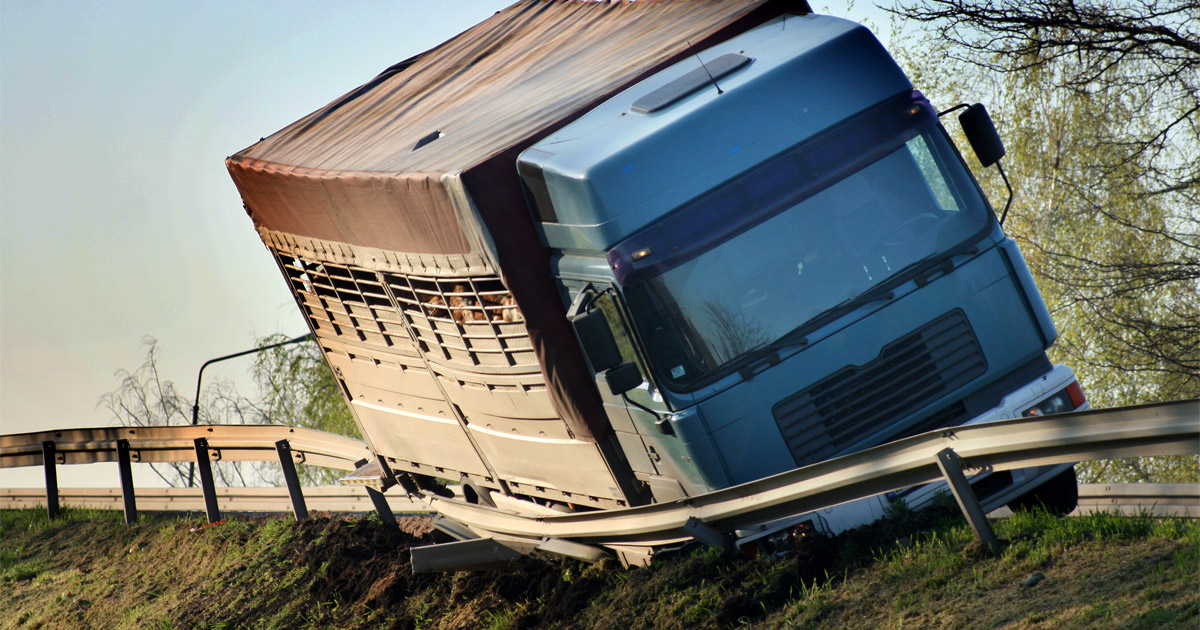Truck Accidents Involving Oversized Loads: What You Should Know
Posted on: November 20, 2023
Truck accidents are common, but the consequences can be particularly devastating when they involve oversized loads. An oversized load refers to any cargo that exceeds a truck’s standard or legally established dimensions or weight limits. Due to their size and weight, these loads often require special permits and extra attention during transportation.
How Do Truck Accidents Involving Oversized Loads Happen?
Accidents involving oversized loads can occur due to various reasons. The most common causes include:
- Improper loading: If the load is not properly secured, it can shift during transit, causing the truck to become unbalanced and potentially tip over.
- Excessive weight: Oversized loads often exceed the truck’s weight limit, making it difficult for the driver to control the vehicle, especially at high speeds or in adverse weather conditions.
- Visibility issues: Oversized loads can obstruct the driver’s view, making it difficult to see other vehicles or road hazards.
What Are the Dangers of Oversized Loads?
The sheer size and weight of oversized loads make them inherently dangerous. They can cause more severe damage in an accident because of the increased impact force. Due to the additional time and distance required to stop a truck carrying an oversized load, they can lead to more complex accidents, such as multi-vehicle pile-ups.
Oversized loads pose significant risks to the large truck drivers and other drivers and passengers on the road. Because of the excessive dimensions, other motorists might find it challenging to accurately estimate the truck’s space and speed, leading to dangerous situations. The oversized load can also create blind spots for the truck driver, limiting their field of vision and increasing the risk of collisions with smaller vehicles that are not immediately visible.
The oversized loads can extend into neighboring lanes or hang off the back of the truck, creating hazardous conditions for unaware motorists. Such scenarios can lead to side-swipe or rear-end collisions. Also, because of the extended length or width, turning and maneuvering become more complex, often requiring multiple lanes and leading to disruptions in traffic flow.
In extreme cases, the oversized load might hit overhead structures like bridges or tunnels, causing debris to fall onto the roadway and creating immediate and severe hazards for following vehicles.
To avoid a collision with an oversized load, drivers might execute sudden maneuvers that could lead to accidents involving other vehicles, pedestrians, or fixed objects. The potential for severe injuries or fatalities in such incidents is significantly heightened due to the size and weight of oversized loads.
Common Injuries Resulting From Oversized Load Truck Accidents
Victims of oversized load accidents often suffer severe, sometimes life-threatening injuries, including:
- Traumatic brain injuries (TBIs): The force from a collision with an oversized load can cause severe head trauma, leading to a TBI.
- Spinal cord injuries: These injuries can result in partial or complete paralysis, significantly impacting the victim’s quality of life.
- Broken bones or fractures: The impact of such accidents can lead to multiple broken bones or fractures.
Who Is Liable for an Oversized Load Truck Accident?
Determining liability in oversized load accidents can be complex due to the multiple parties involved. These may include the truck driver, the trucking company, the party responsible for loading the truck, or the manufacturer or its parts. An experienced attorney can help identify the liable parties.
A Freehold Truck Accident Lawyer at Ellis Law Can Help
Getting into a truck accident is terrifying and can lead to severe and lifelong injuries. For legal help, speak with a Freehold truck accident lawyer at Ellis Law. Call us at 732-308-0200 or contact us online to schedule a free consultation. Located in Freehold, New Jersey, we serve clients in Asbury Park, East Brunswick, Toms River, Middletown, Jersey City, Long Branch, Neptune, Hudson County, Union County, Essex County, Monmouth County, Marlboro, and Ocean County, as well as Brooklyn and New York City.


